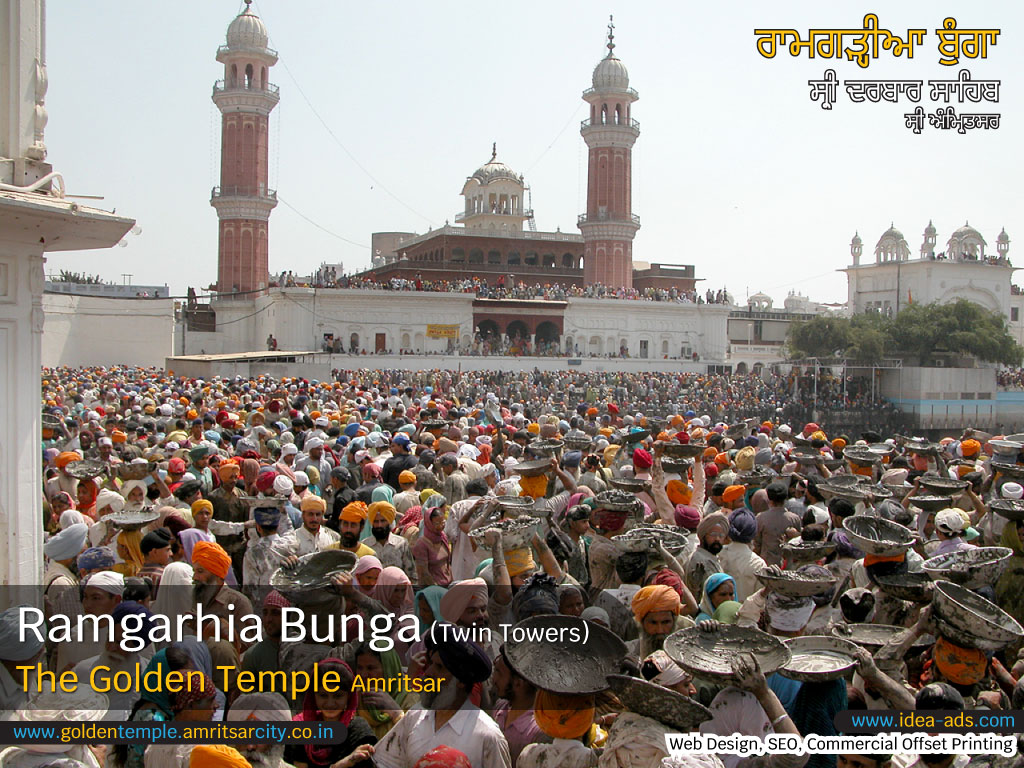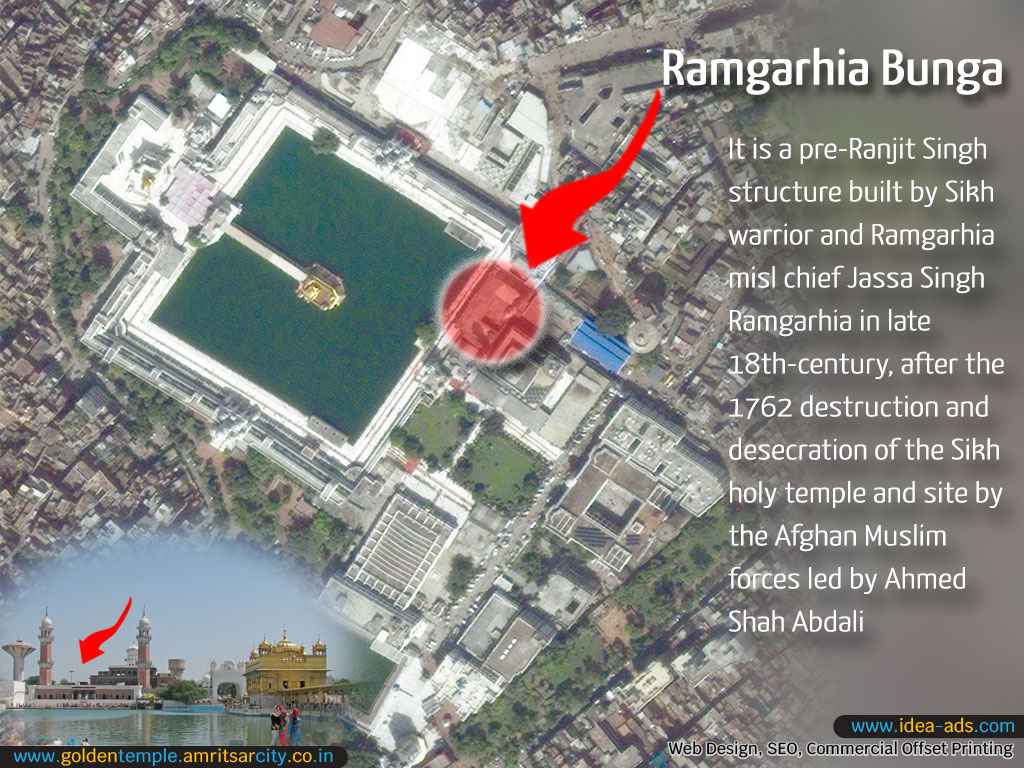Travel Guide to



Ramgarhia Bunga or Burj is the three-storeyed red stone watchtowers complex located near southeastern edge of the Sri Darbar Sahib Amritsar (The Golden Temple Amritsar). The two minaret-style Ramgarhia Bunga high towers are visible from the parikrama (circumambulation) walkway around the Sri Darbar Sahib Amritsar (The Golden Temple Amritsar) Sarovar (water tank). It is a pre-Ranjit Singh structure built by Sikh warrior and Ramgarhia misl chief Jassa Singh Ramgarhia in late 18th-century, after the 1762 destruction and desecration of the Sikh holy temple and site by the Afghan Muslim forces led by Ahmed Shah Abdali. The Bunga watchtowers-related infrastructure was constructed to station sentinels to watch for any surprise attack, house soldiers to help fortify the area, and to protect the holy complex from desecration.
The Ramgarhia Bunga houses the granite slab of Takht-e-Taus from the Red Fort on which, according to the oral tradition, all the Mughal emperors were crowned in Delhi. This slab was seized by Sikhs from Delhi, during an attack against the Mughal armies, and brought back to Amritsar as a symbol that the Mughal Empire will end with the removal of their coronation stone.
During the reign of the Muslim Mughal Emperors, The Sri Darbar Sahib Amritsar (The Golden Temple Amritsar) was damaged many times, but each time it was rebuilt by the Sikhs. Sardars of the 12 Sikh Misls decided that some of the Khalsa leaders must be housed inside it for its protection against their enemies. During the 18th century, Sikh misl chiefs and rich communities built over 70 such Bungas of different shapes and forms around the Sri Darbar Sahib Amritsar (The Golden Temple Amritsar) to watch the area, house soldiers and defend the temple. Such Bungas were also built near major Sikh shrines elsewhere on the Indian subcontinent in the 18th-century. In the 19th century, these served defensive purposes, provided accommodation for Sikh pilgrims and some served as centers of learning. Most of the Bungas were demolished during and after the British colonial era, often to improve the facilities for growing number of pilgrims in the 20th-century. The Ramgarhia Bunga is single surviving example of the Bunga-related historic infrastructure in Amritsar, along with Akal Takht which originally was built as the Akal Bunga on the other side of holy tank.
Ramgarhia misl chief Jassa Singh Ramgarhia had conquered territory as far afield as Delhi, where he removed the slab from the Takht-e-Taus on which the Mughal coronation ceremonies were held. He brought the slab to Amritsar and placed it in the Ramgarhia Bunga where it still lies.
